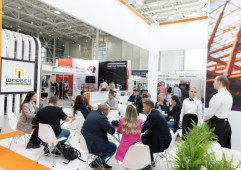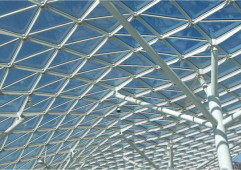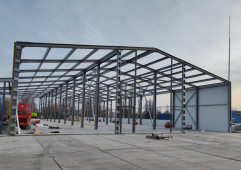MMK Allocated RUB 8.7 Billion for Environmental Measures in 2019
In 2019, Magnitogorsk Iron and Steel Works (MMK), a Metal-Expo regular exhibitor, allocated more than RUB 8.7 billion for environmental protection, of which more than RUB 5.3 billion was spent on capital construction of new, and reconstruction of existing, environmental protection facilities. MMK allocated a further RUB 3.4 billion for on-going environmental protection measures including repairs and maintenance of environmental objects, reclamation, waste disposal, organisation of industrial ecological controls etc.
Total investments in environmental protection activities for 2015-2019 amounted to more than RUB 20 billion, while there has been a steady increase in the volume of investments, in 2019, they have increased by almost 2.5 times compared to 2015. By 2025, investments in the construction of environmental protection facilities will amount to RUB 38.1 billion, most of which (57%) will be directed to measures to reduce emissions of air pollutants.
MMK has developed and implemented a long-term environmental programme that covers all its production processes and is aimed at implementing the best available technologies. This programme allows for a reduction in the existing level of environmental impact and ensures the environmental safety of technological processes. In accordance with MMK's environmental programme, 80 technical measures aimed at reducing and preventing negative impacts on the environment were carried out in 2019. In 2020, MMK will continue to work on 8 further initiatives.
Among the most significant environmental measures of the MMK Environmental programme in 2019 were the construction and commissioning of environmental protection facilities of the new sinter plant No. 5, as well as the construction of dust collection systems in the sinter and coal preparation shops. Sinter plant No. 5 is equipped with 20 modern high-performance environmental protection facilities and uses the best available technologies. The commissioning of the new sinter plant will make it possible to decommission the outdated equipment at sinter plant No. 4. As a result, dust emissions will be reduced by half, a fourfold reduction in sulphur dioxide emissions and a sixteen-fold reduction in benzopyrene emissions. By the end of 2019-2020, it is expected to reduce dust emissions from the sinter plant by 2,075 tonnes and sulphur dioxide emissions by 3500 tonnes.



